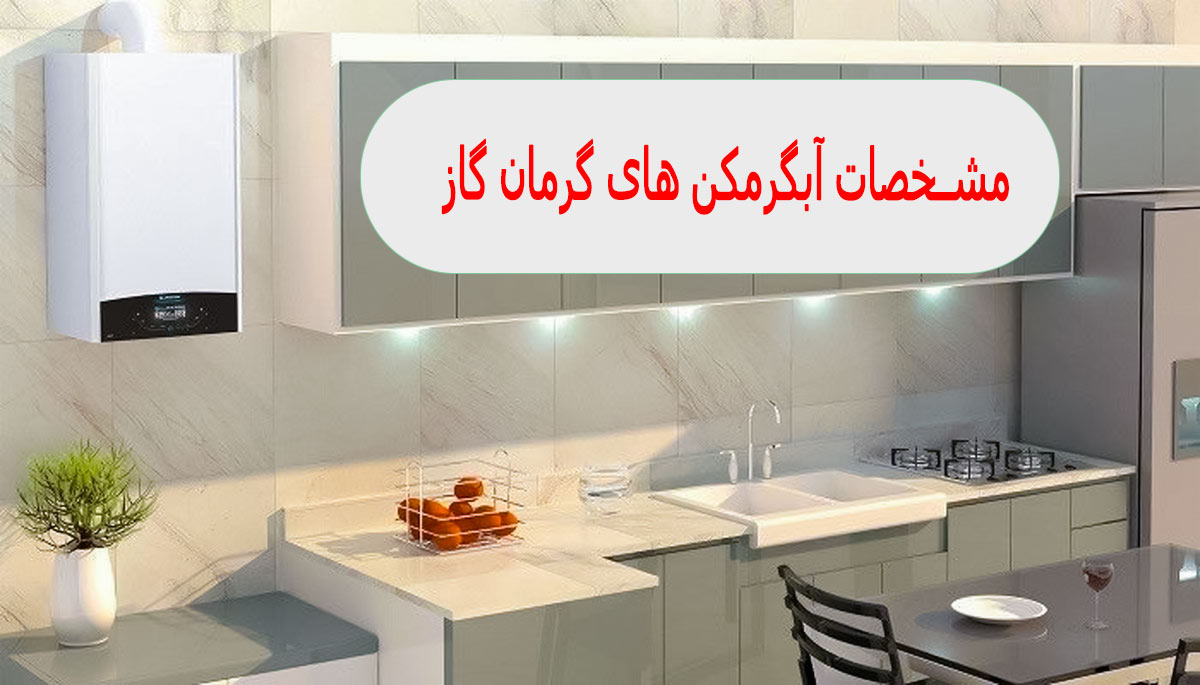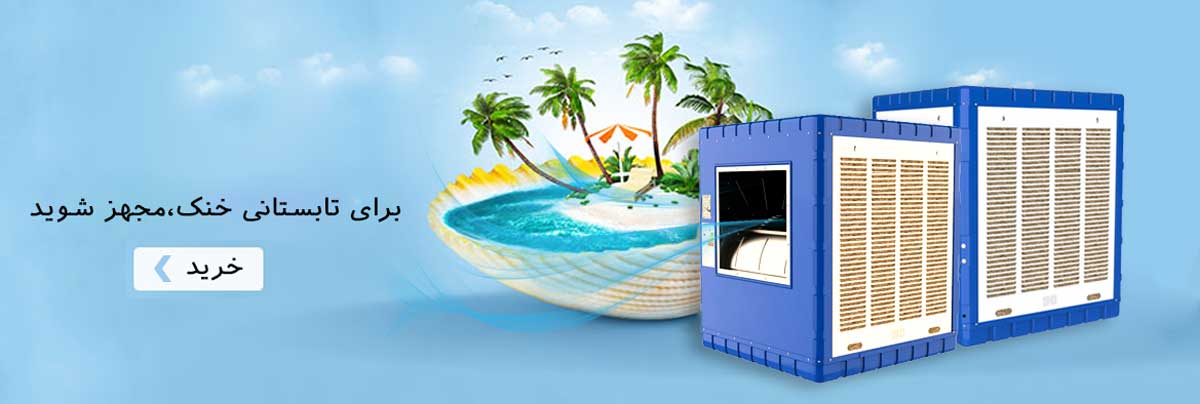Is Conversational AI a Good Fit for Guest Communications?
AI chatbots can analyze customer data to offer personalized upselling and cross-selling opportunities. Whether it’s room upgrades, spa packages, or special dining experiences, targeted offers can result in additional revenue streams, contributing to a higher ROI. By leveraging cutting-edge AI technology, UpMarket is not just keeping up with the hospitality industry’s demands but setting new standards for customer engagement and service excellence. With contactless service becoming the preferred option for many travelers, now is the ideal time to improve contact center agility and functionality by implementing conversational AI and automation. Looking at the various statistics, we can safely say that today’s travellers are more digitally savvy and aware of the plethora of options available online. The travel industry, on the other hand, is also actively moving to messaging apps.
In the European Union alone, there was an estimated 1.2 million staff shortage within the tourism industry, as reported in 2022 by the World Travel and Tourism Council (WTTC). It directly affects the guest experience – in many properties, it generates longer response times to incoming queries, longer queues at the reception, and constrains the possibilities of personalized service. If pushed to the limit, many hoteliers focus on ensuring operational efficiency while sacrificing the level of service that can be provided. Innovative solutions like rule-based chatbots for hotels (i.e., “yes”/”no” answer structure to determine offers presented) are not nearly as efficient as those powered by conversational AI.
Can AI replace humans in the hospitality industry?
The hospitality industry is known for its adaptability. Embracing AI presents an opportunity to evolve and offer even better guest experiences. For most job roles, AI is here to augment, not replace, hospitality professionals. The human touch will remain irreplaceable.
This not only enhances guest convenience and safety but also streamlines hotel operations and reduces staff workload. Viqal’s Virtual Concierge significantly reduces reservation changes via phone and email by 60%, enabling hotel staff to focus more on personal guest service and less on administrative tasks. 77% of consumers are more likely to recommend your business to their friends after receiving a positive customer service experience. The rise of conversational AI search has the potential to disrupt some of the progress hotels have made optimizing their websites for direct traffic. When travelers turn to chatGPT to research hotels, for example, there’s no way to know how it chooses which properties to display when asked, “What are the best hotels for a girlfriend getaway in New York City?
Machines and software can now interact with people in a human-like manner. Looking ahead, tourism chatbots will become more conversational using emotion detection and context remembering to feel more natural and human. Smart wearables could integrate voice-controlled bots for hands-free use. Chatbots embedded in augmented and virtual reality will transform travel visualization. Imagine donning a VR headset and verbally inquiring about various London hotels or requesting your bot guide you through an interactive Vatican tour. By fielding routine guest queries, bots enable hotel staff to focus on providing personal service during stays.
Want to receive exclusive insights about Hotel Management?
If you want to learn how to use AI in hospitality venues, you can start by studying for a hospitality degree. Chatbots have become valuable tools for enhancing customer interactions by accurately understanding their preferences. This opens up excellent opportunities to effectively upsell and cross-sell during these conversations. Finally, it is important to have a solid foundation of analytics and reporting to gain insights into customers’ needs and preferences. A rule-based chatbot is built upon predetermined scripts and programmed responses.
Conversational AI enables hotels to deploy targeted marketing campaigns via messaging platforms and social media channels. By engaging with potential guests in a conversational manner, chatbots can disseminate information about special offers, loyalty programs, and exclusive deals, effectively driving awareness and enticing bookings. With a conversational AI chatbot for hotel, you can successfully fulfill the needs and expectations of today’s digital-savvy guests and travelers. Hospitality chatbots powered by AI are capable of streamlining guest experience across all digital platforms and provide them with hyper-personalized assistance.
Automate routine requests like seat and meal preferences, freeing up your agents for more complex issues. Give travelers the option to change travel dates or cancel reservations with travel chatbots. Using the combination of text-based conversation and rich graphic elements, HiJiffy is reshaping how hotels – chains or independents – communicate with their guests. As a result, an advanced conversational AI evaluates and analyses client feelings using conversational AI NLP (Natural Language Processing), categorising them as positive, negative, or neutral. This enables the conversational bot to respond appropriately to the customer.
It works toe-to-toe with Deep Learning models to increase the chances of a machine correctly interpreting what human agents are saying. This enables voice agents to break down speech into smaller segments, like sentences and words, and ensure the software can recognize it more easily. With AI technology, you can reduce the number of your staff and allocate the money to other departments. At the same time, you can relax knowing that your guests are getting top-quality service. Viqal provides comprehensive support to ensure a smooth integration and functionality during your subscription term. Our services include a dedicated integration specialist, 24/7 technical support, and continuous updates.
This includes creating an appealing character, selecting the correct messaging platform and channel, polishing the dialogue flow, and ensuring that a conversational interface is well-suited to the work at hand. For conversational upgrades, you’ll need to figure out when the system should provide ideas to the human agents or users and then design the interactions to make them seamless and natural without being obtrusive. Chatbots are no longer a luxury but a necessity in the hospitality industry. UpMarket’s AI technology stands at the forefront of this digital revolution, offering a chatbot solution that is efficient, intelligent, and continuously evolving. The UpMarket SolutionUpMarket’s DirectBook chatbot for hotels serves as an immediate virtual assistant, capable of answering these pre-booking questions in real-time. By doing so, it removes any doubts and encourages the guest to complete the booking, thereby increasing conversion rates.
Better customer satisfaction with less staff pressure
To address this, hotels and restaurants need to find a balance between using AI and maintaining a personal touch. This can be achieved by training staff to use AI as a tool to enhance their service, rather than replacing it. These automated systems are designed to swiftly address frequently asked questions, minimizing wait times and enhancing overall customer satisfaction. What’s more, even beyond regular business hours or during peak periods, chatbots ensure uninterrupted availability by delivering consistent responses around the clock. This unparalleled efficiency sets them apart from human teams who may struggle to provide continuous support.
Before exploring the answer to the titular question from guests’ and hotels’ perspectives, let’s take a closer look at the technology itself. In recent years, hotel tech solutions powered by Artificial Intelligence have become increasingly more advanced thanks to dynamic development in the field. In parallel, guests’ expectations of the customer-facing technology increased as well. Leveraging Conversational AI Chatbots in these use cases can significantly enhance the overall customer experience in the travel and hospitality industry, contributing to customer satisfaction and loyalty. In the dynamic landscape of the hospitality industry, enhancing guest experience is paramount.
UpMarket, a leader in cutting-edge AI technology, offers a seamless chatbot experience without the need for lengthy onboarding. With minimal AI training time, UpMarket’s chatbots allow users https://chat.openai.com/ to ask anything and get services using natural language. This enhances the user experience significantly, solving many issues that customers usually face with traditional chatbots.
By gathering valuable feedback in real time, hotels can identify areas for improvement and address guest concerns promptly. Listening to guests’ opinions and feedback is crucial for any hotel striving for continuous improvement. Conversational AI facilitates this process by leveraging AI-powered surveys and sentiment analysis.
The conversational AI-powered chatbot lists relevant recommendations, and allows users to book their favorite hotel besides facilitating payments. As travelers, long denied their desired experiences, line up to book hotels, schedule flights, and arrange car rentals and lodging, the amount of customer queries rises. With the travel industry still recovering from the hiatus, it’s expected that issues will arise. Flights may be changed or canceled, hotels may be overbooked, or reservations incorrectly entered, and the last thing a customer wants is to be stranded with little or no avenue for prompt communication. The conversational AI-powered hospitality tools are transforming guest experiences and shaping the future of the industry. 64% of travellers and 80% of business users expect travel companies to respond to them in real-time.
So, the next time you’re staying at a hotel or dining at a restaurant, don’t be surprised if you find yourself having a conversation with a machine. After all, it’s just another way that technology is making our lives easier and more enjoyable. An AI hotel reservation system provides assistance throughout the booking process in a conversational way. If your hotel uses a booking engine, the data can be directly transferred if integration with the conversational AI solution exists.
Embrace this transformative technology, and let the magic of conversational AI weave unforgettable experiences for your guests. Embracing this magical technology can enhance guest delight, improve operational efficiency, and foster lasting connections with guests. Hotels can now seamlessly communicate with guests in their native languages, providing a truly personalized experience that surpasses linguistic limitations.
Colleges are using AI to prepare hospitality workers of the future – The Conversation
Colleges are using AI to prepare hospitality workers of the future.
Posted: Thu, 22 Feb 2024 08:00:00 GMT [source]
Large language models such as Llama and GPT are another important component of such tools as they provide the knowledge base for conversational tools. In many cases, LLMs use data scraped off the internet to answer various questions. AI software engineers can narrow down their knowledge and tailor the products for specific businesses and industries. So, how exactly does conversational AI work in the hospitality industry? Hotels and restaurants collect data on their guests’ preferences and behavior, such as their preferred room temperature, food and drink preferences, and even their preferred mode of communication.
You can foun additiona information about ai customer service and artificial intelligence and NLP. This ensures that customers receive immediate help, regardless of their time zone or the hour of the day. The company appreciated the Master of Code team’s consistency in delivering good results every time they work together. Whether relaxing in bed or sitting at a desk, guests can adjust TVs, lights, curtains, and thermostats with just their voice. – Encourage enrollment in loyalty programs through the chatbot interface.
Imagine a guest browsing a hotel’s website for information on room availability, pricing, and amenities. Instead of calling the hotel and waiting on hold or searching for information on their own, the guest can simply start a chat with a chatbot. The chatbot can answer their questions, make their reservations, and provide tips on local sights in real-time, providing a seamless and efficient experience. Moreover, becoming more sophisticated, conversational AI chatbots and voice assistants help hotels save time and money while improving services simultaneously.
Leverage LLM-powered AI tools to automate the most common traveler conversations like flight status, cancellations, and weather delays. LivePerson makes it easy to do this and more by integrating with a variety of systems. Give travelers the option to change travel dates or cancel reservations with travel chatbots.
For guests, this means more efficient travel planning (with some tradeoffs) and instant communication with the hotel. For hotels, this means personalization at scale, improved productivity and streamlined customer service. Conversational AI-powered chatbots embedded within hotel websites can engage with potential guests in real-time, capturing leads, and qualifying them based on their preferences, budget, and booking requirements. By offering personalized assistance and relevant recommendations, chatbots nurture leads through the sales funnel, ultimately driving conversions.
To enable more personalized, contextually aware interactions, it is important to have a single source of truth in terms of customer information. While the technology for personalization is there, the challenge is getting all the unstructured and structured data out of silos, as Nelson indicates. It is helpful to centralize and curate the customer data to enable chatbots, IVR, and voice assistants to all consume the same data, adds Nalda. Post-stay, Viqal’s Hotel Concierge gathers feedback and guests can also be encouraged to leave reviews, aiding in service improvement and enhancing guest experiences for future stays. The result is a virtual assistant that can be deployed for any voice channel and can handle any number of trained Q&As, foreign languages, difficult-to-understand accents and muffled sounds from the speaker.
How Voice Channel Technology Elevates the Luxury and Ultraluxury Hotel Guest Experience – Hotel Technology News
How Voice Channel Technology Elevates the Luxury and Ultraluxury Hotel Guest Experience .
Posted: Tue, 20 Feb 2024 08:00:00 GMT [source]
At the same time, you will get access to 2024 top OpenAI GPT tech without any complex APIs or integrations. Either train the chatbot using your business data or have it run on its own, accumulating customer details and replying to questions. Furthermore, these chatbots are not just more affordable, they’re also more accessible. With simple integration processes and user-friendly interfaces, smaller hotels can easily adopt and start benefiting from this technology.
This can enhance the overall guest experience and make their stay more enjoyable. The hospitality industry is readily moving towards an AI-powered future. At the same time, you provide quick, responsive, and personalized customer service to your (prospective) guests.
What kind of data does it actually provide?
The technology can be used to synthesize all the knowledge across the organization, in structured and unstructured data, and use that information to provide potential solutions or answers for an agent. As Nelson points out, there is huge attrition in the contact center as it is not an easy job. The technology can be used to help make an agent’s job easier, and enable them to be more productive, and provide better customer service. At Aeromexico, the goal of the conversational AI experience is to be a travel companion — before, during, and after the journey.
It can answer questions, handle reservations, and even upsell additional services. Plus, it can integrate with a hotel’s existing systems to provide a seamless guest experience. This chatbot is designed specifically for hotels and uses machine learning to provide personalized guest experiences. It can also handle tasks like room bookings, upselling services, and answering guest queries, making it a valuable tool for any hotel.
What is chatbots in hospitality industry?
A hotel chatbot is a type of software that is used to replicate a conversation between the property and a potential guest on the hotel's website. The chatbot is designed to ask and answer common questions, so it can help guests find the information they need and make a booking decision.
Despite all those efforts, people find it hard to reach out to you whenever they need to get their queries resolved and coordinate with you for every tiny piece of information they require while travelling. The Poly AI example shows the potential of the conversational layer helping hotels in unexpected ways. And, as AI continues to develop, it will become a mission-critical tool for hotels to optimize operations, personalize experiences and deepen relationships with guests. A hotel’s website may benefit from a more conversational tone, for instance, and a hotel blog should build credibility for likely traveler queries at the long tail of search. For a hotel in Vegas, “What are the best hotels in Vegas for a bachelorette party? ” could become a blog post that also features reviews from past guests who recommend the hotel specifically for this purpose – and better positions the hotel for conversational search recommendations.
- Conversational AI-powered chatbots help travel and hospitality companies to cater to the needs and demands of their digitally savvy travellers and get multifold benefits in return.
- Because candidates could simply Google the answers to questions when using Email for screening.
- What makes AI-based products particularly helpful for commercial use is their capacity to self-learn.
- Conversational AI platforms specialising in hospitality offer a range of integrations with popular hotel tech solutions, such as hotel maintenance systems.
- Conversational interfaces don’t exist in isolation, they communicate with other hotel systems.
During their stay, the chatbot can remain in conversation with the guest, enabling them to order room service, make housekeeping requests, and provide information on entertainment during their stay. These are the instruments makingvTalk.ai distinguishable from its competitors. With the platform, you can be sure to boost your guests’ experience, reduce staff fatigue, and set up an elaborate system processing requests in a blink of an eye.
Some of them will start asking for more information which helps you engage clients even more. NLP is required to build AI-powered applications that recognize speech and provide human-like interactions. NLP interprets human speech, including grammar, style, spelling, and context. Comes predicts a major shift from IT and developers to business and designers. In the future, it will not be all about the technology, but how you make technology work for you based on business outcomes.
People also rely on the product to find out about local places of interest, such as shops, cafes, and museums. Automation now plays a crucial role in the hotel industry, particularly through the use of rule-based chatbots that handle various tasks like confirming bookings or providing check-in details. This automation greatly streamlines processes that were traditionally done manually.
All requests can be tracked according to many different categories including the nature of the request, number of requests, average response times, labor hours saved, escalated requests and results. This reports and analysis can help to determine strong and weak spots in the delivery team as well as highlight similar redundant requests such as heat, A/C and case goods. Today in hotels much of this guest feedback is not recorded or analyzed. Over 700,000 hotels worldwide already use them to handle various mundane processes. The hospitality industry’s increased interest in these products will contribute to growing the conversational AI market, which is expected to reach $73,05 billion in 2033.
In general, people can have a personalized travel guide in their pockets. Most sophisticated virtual agents even offer minute-to-minute public transportation schedules and notify them of happy hours in restaurants and bars. They can have travel-related questions answered and online reservations completed in just a few taps. A user just types in some command, and the conversational AI platform offers a response from its database. Nevertheless, these can provide a human-like interaction and help streamline the company’s operations. It is a voice and text-based communication technology coupled with speech pattern recognition powered by AI and ML.
These recommendations may include highly-rated restaurants in the vicinity or upcoming local events of interest. By analyzing user preferences and utilizing past interactions, AI-based suggestions cater to individual guest needs, demonstrating a deep understanding and dedication to guest satisfaction. They provide comprehensive assistance to guests throughout the entire booking process. From helping you select the perfect room to providing information on appealing discounts and offers, these virtual assistants guide you every step of the way until your reservation is confirmed.
They typically come with their own CMS and analytics but their true power is in ability to integrate with the hotel’s property management system (PMS). Advanced solutions like this notify hotel staff immediately as a guest makes a request. Due to PMS integration, the front desk can easily authenticate the guest name and room number, dispatch requests to appropriate staff, and then track the progress as the staff fulfills requests. In simplest terms, conversational AI is a computer program that can be trained to have conversations with users through a chat interface. It’s a form of automated communication with users that can be exposed on hotel websites, applications, or messaging apps. This may not yet be obvious, but AI technology is increasingly shaping the way hotels service their guests.
CloudApper AI revolutionizes the hospitality industry with Conversational AI, enhancing customer interactions and operational efficiency. By providing instant replies, personalized services, and seamless operations, it boosts guest satisfaction, driving loyalty and streamlining hotel management in the digital era. Conversational AI-driven tools like hospitality chatbots are solutions designed to assist guests via helpful information and support during their hotel or travel stay. These tools use NLP and ML, which enable them to interact with users in natural language.
What is the AI tool for finding hotels?
Staypia is a hotel booking platform that uses artificial intelligence to find the lowest prices on over 3.16 million hotels worldwide. It offers members additional discounts on top of already low prices for extra savings.
People want a helpful chatbot that serves their needs, rather than one that frustrates them with limited functionality. Just to think of it, with Chatbit you can have a fully functional trainable AI chatbot with 500 monthly responses absolutely for free! For example, if many guests are asking about vegan dining options, the hotel might consider expanding its vegan menu.
How can AI and chatbot be used by a five star hotel?
Chatbots powered by AI technology have revolutionized the hotel booking process, making it more convenient and efficient for customers. By minimizing wait times, offering alternative options when necessary, and providing quick solutions, AI chatbots streamline the navigation through various hotel services effortlessly.
Even with limited resources, small hotels can now deliver the same level of personalized, instantaneous, and 24/7 service that makes chatbots so valuable to the hospitality industry. Artificial Intelligence enables chatbots to mimic human intelligence, allowing them to understand complex requests, learn from past interactions, and even predict future user needs. Hotels can significantly improve guest satisfaction levels by handling complaints efficiently and timely. Satisfied visitors are more likely to become loyal customers and hotel promoters, resulting in positive feedback and higher income. CloudApper’s Conversational AI allows hotels to provide immediate support to customers who encounter problems or have complaints.
The ChallengeOnce checked in, guests have a variety of needs that traditionally require a human concierge. This can lead to delays and occasional errors, conversational ai hospitality affecting the guest’s overall experience. Efforts have been
underway to reverse this trend by improving their customer-facing digital Assets.
The team looks for small tasks along the customer journey that can be automated or improved with conversational AI. For example, customers can check-in for a flight via WhatsApp and have their boarding pass in a minute. If after a flight, a customer has an issue with baggage, they can make a claim via the chatbot and quickly receive compensation.
In an industry that caters to guests from all over the world, this is a game-changer. Guests can communicate with the AI system in their native language, making them feel more comfortable and understood. This also eliminates the need for hotels and restaurants to Chat GPT hire multilingual staff, reducing costs and increasing efficiency. Chatbots have proven to be valuable in more than just customer support. Chatbots equipped with artificial intelligence algorithms can provide personalized travel recommendations to guests.
That’s when sentiment analysis helps your business process large amounts of unstructured data efficiently and cost-effectively. Likewise, AI can be used to predict customers’ future actions based on their past behaviours. Like many technologies, conversational AI has found its audience first among the giant chains that can afford its development and integration. However, the latest developments in this field demonstrate that products based on this technology will become a more common site worldwide, making the hospitality industry more automated and improving its figures. This Nevadan hotel decided not to invent the wheel and simply added Alexa-powered Echo devices to its 4,748 guest rooms. Perhaps the hotel felt that it was cheaper to spend thousands of dollars on the upgrade instead of building a conversational tool from scratch.
Additionally, conversational AI never sleeps, ensuring round-the-clock assistance. Within hotel walls, AI chatbots are becoming virtual concierges enhancing the guest experience. Edwardian Hotels London uses a bot named Edward to recommend local sights, book spa appointments, explain WiFi and more. While travel and hospitality enterprises are implementing conversational AI solutions to provide a better customer experience, they are also implementing the solutions to achieve business goals. In one example, Comes team created an experience on a voice channel that would send users a link to a web form to fill out. The team had found some people just prefer to pick up the phone and call, instead of looking for the form to start.
How big is the AI in the hospitality market?
The global Artificial Intelligence in Hospitality and Tourism Market size was valued at USD 13.85 billion in 2022 and is projected to expand at a compound annual growth rate (CAGR) of 35.8% during the forecast period, reaching a value of USD 158.40 billion by 2030.
- فروشگاه صفا بازار
- دی ۱۹, ۱۴۰۲
- 3 بازدید











